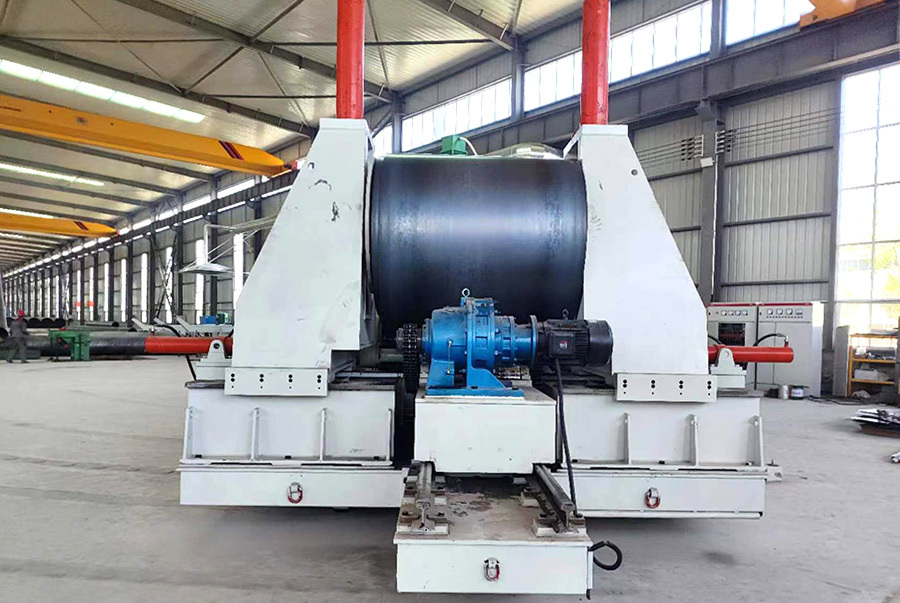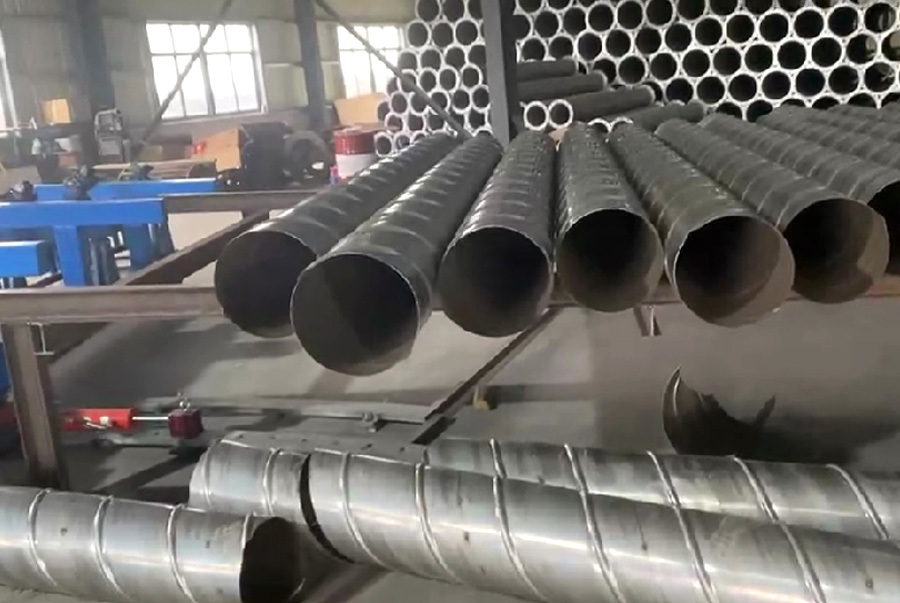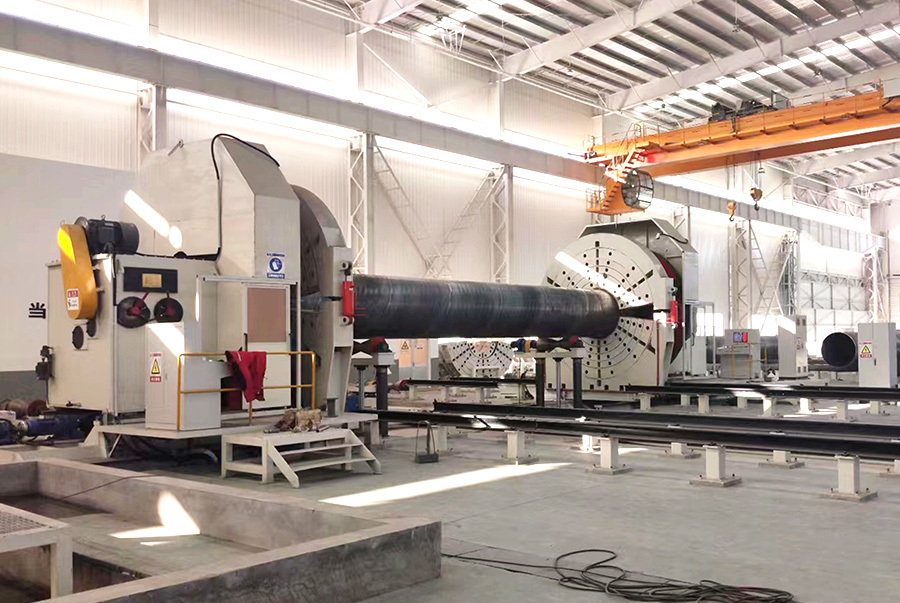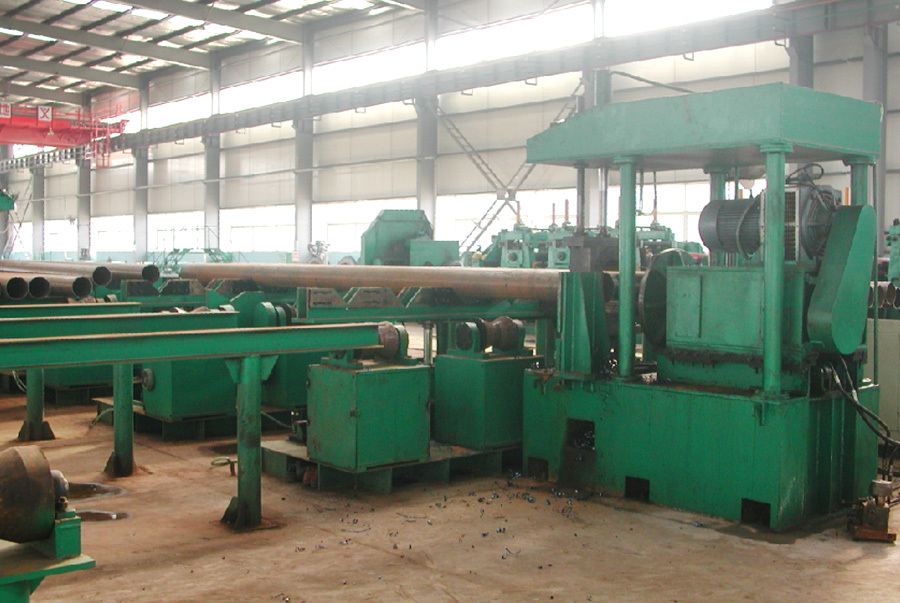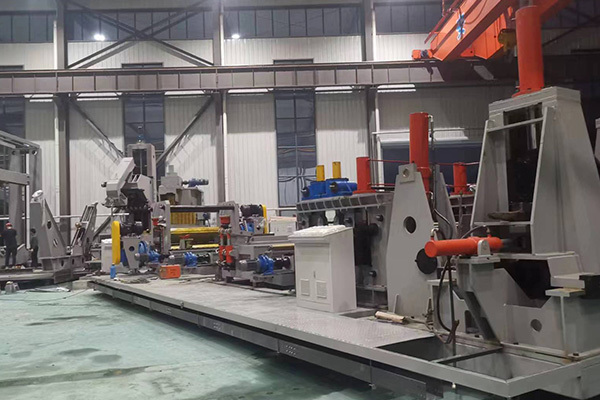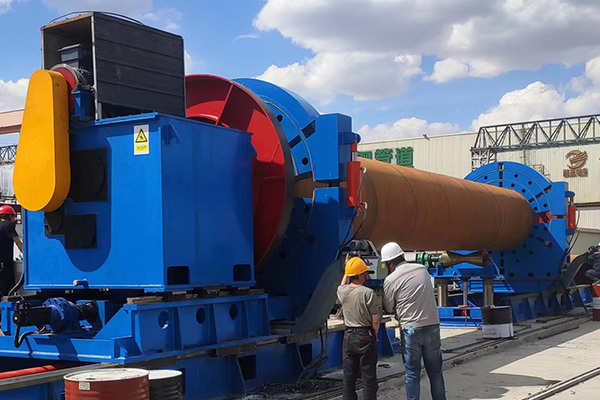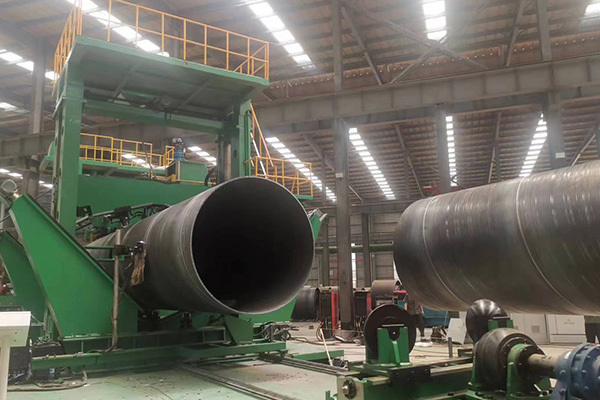Exploring the Benefits of Steel Pipe Mills in Modern Manufacturing
21 Jun,2025
Exploring the Benefits of Steel Pipe Mills in Modern Manufacturing
Manufacturing processes have evolved dramatically over the years, particularly with the integration of advanced machinery and innovative technologies. Among the most significant contributors to this evolution are **steel pipe mills**, which play a vital role in producing high-quality steel pipes used in various applications. This a
Exploring the Benefits of Steel Pipe Mills in Modern Manufacturing
Manufacturing processes have evolved dramatically over the years, particularly with the integration of advanced machinery and innovative technologies. Among the most significant contributors to this evolution are **steel pipe mills**, which play a vital role in producing high-quality steel pipes used in various applications. This article will explore the numerous benefits of steel pipe mills in modern manufacturing, providing in-depth insights into their advantages, technological advancements, and applications across diverse industries.
The Role of Steel Pipe Mills in Manufacturing
Steel pipe mills are specialized facilities designed to manufacture steel pipes through processes such as welding, extrusion, and rolling. These mills cater to a wide array of industries, including construction, oil and gas, automotive, and infrastructure. The pipes produced are essential for various applications, from transporting fluids to serving as structural components.
By understanding the fundamental role that steel pipe mills play in manufacturing, we can appreciate the myriad benefits they offer, including increased production efficiency, enhanced product quality, and reduced operational costs.
Advantages of Steel Pipe Mills in Modern Manufacturing
1. Enhanced Production Efficiency
One of the primary benefits of steel pipe mills is their ability to produce pipes at a significantly faster rate compared to traditional methods. Through the use of cutting-edge technology and automated processes, these mills can streamline production, minimize downtime, and maximize output. This enhanced efficiency translates to quicker turnaround times for manufacturers, enabling them to meet urgent project deadlines and respond to market demands more effectively.
2. Improved Product Quality
Quality control is paramount in manufacturing, and steel pipe mills excel in this regard. With advanced quality assurance systems in place, these facilities can maintain stringent standards throughout the production process. The use of high-quality raw materials, precision machinery, and expert oversight ensures that the steel pipes produced are durable, reliable, and meet industry specifications. As a result, manufacturers can trust that the products they deploy in their projects will perform optimally and withstand the rigors of their intended applications.
3. Cost-Effectiveness
Investing in steel pipe mills can lead to significant cost savings over time. The automation and efficiency provided by modern mills reduce labor costs and minimize waste. Additionally, the ability to produce high-quality pipes in large quantities can lead to economies of scale, further driving down costs. Manufacturers can then pass these savings on to their customers, making their products more competitive in the market.
4. Flexibility and Customization
Steel pipe mills are equipped to handle a variety of specifications and requirements, allowing for a high level of flexibility in production. Whether a manufacturer needs standard pipes or customized solutions, modern mills can accommodate different sizes, thicknesses, and material grades. This adaptability ensures that manufacturers can meet the unique needs of their clients and industries, whether they are in construction, energy, or automotive sectors.
Customization Options for Steel Pipes
- **Diameter and Thickness:** Steel pipe mills can produce pipes in a variety of diameters and wall thicknesses to meet specific application requirements.
- **Material Grades:** Different grades of steel can be utilized, depending on the necessary strength and corrosion resistance.
- **Finishing Processes:** Mills offer various finishing techniques, such as painting, coating, or galvanizing, to enhance the pipes' performance and durability.
5. Technological Advancements
The steel pipe manufacturing industry has witnessed substantial technological advancements over the years. Modern steel pipe mills employ state-of-the-art machinery and innovative manufacturing techniques that have revolutionized the production process. These advancements include:
- **Automated Production Lines:** Automation significantly reduces manual labor, leading to quicker production and fewer errors.
- **Laser Cutting Technology:** This allows for precise cuts and shapes, ensuring that pipes meet exact specifications.
- **Real-Time Monitoring Systems:** Advanced monitoring technologies enable manufacturers to track the production process in real-time, leading to better quality control and immediate adjustments if issues arise.
Applications of Steel Pipes in Various Industries
Steel pipes produced in modern mills find applications across a wide range of industries. Understanding these applications helps illustrate the importance of these mills in the manufacturing ecosystem.
1. Construction Industry
In the construction sector, steel pipes are indispensable for structural support and infrastructure development. They are used in building frameworks, plumbing systems, and as conduits for electrical wiring. The strength and durability of steel pipes make them ideal for various construction applications, ensuring that buildings and structures are built to last.
2. Oil and Gas Industry
The oil and gas industry relies heavily on steel pipes for transporting crude oil, natural gas, and other fluids. Steel pipes are preferred for their ability to withstand high pressure and corrosive environments. The use of quality steel pipes ensures safe and efficient transportation in pipelines, minimizing the risk of leaks and failures.
3. Automotive Manufacturing
Steel pipes are also integral to automotive manufacturing, particularly in the production of exhaust systems, fuel lines, and structural components. The strength and lightweight nature of steel pipes make them an ideal choice for enhancing vehicle performance and safety.
4. Infrastructure Development
Infrastructural projects, such as road construction and water supply systems, extensively utilize steel pipes. They are used for water transportation, sewage systems, and drainage solutions. The robustness of steel ensures longevity and reliability in these applications, essential for public health and safety.
The Future of Steel Pipe Mills in Modern Manufacturing
As technology continues to advance, the future of steel pipe mills looks promising. With the ongoing development of smart manufacturing, we can expect further enhancements in production efficiency, quality control, and customization options. Innovations such as artificial intelligence and machine learning may play a significant role in optimizing manufacturing processes and predictive maintenance, helping steel pipe mills to remain competitive in an ever-evolving market.
Sustainability in Steel Pipe Manufacturing
Another critical aspect of the future of steel pipe mills is sustainability. As industries increasingly focus on reducing their carbon footprint, steel pipe manufacturers are exploring eco-friendly practices. This includes using recycled materials, optimizing energy consumption, and implementing waste reduction strategies. Sustainable practices not only benefit the environment but also cater to the growing consumer demand for responsible manufacturing.
Frequently Asked Questions (FAQs)
1. What are the main benefits of using steel pipes in construction?
Steel pipes offer strength, durability, and resistance to corrosion, making them ideal for various construction applications. Their ability to bear heavy loads and withstand harsh environmental conditions ensures the longevity of structures.
2. How do steel pipe mills ensure product quality?
Steel pipe mills implement strict quality control measures, including the use of high-quality raw materials, automated inspection systems, and real-time monitoring, to maintain production standards and product integrity.
3. Can steel pipes be customized for specific applications?
Yes, steel pipe mills can customize pipes based on diameter, thickness, material grade, and finishing processes to meet specific application requirements.
4. What role does technology play in modern steel pipe manufacturing?
Technology enhances production efficiency, accuracy, and quality control in steel pipe manufacturing. Automation, laser cutting, and real-time monitoring systems are just a few examples of how technology is utilized in mills.
5. Are steel pipe mills environmentally friendly?
Many modern steel pipe mills are adopting sustainable practices, such as using recycled materials, reducing energy consumption, and implementing waste management strategies to minimize their environmental impact.
Conclusion
Steel pipe mills have become a cornerstone of modern manufacturing, offering unparalleled advantages in efficiency, quality, and cost-effectiveness. Their contributions span across various industries, enhancing infrastructure, energy transportation, and automotive production. As technological advancements and sustainability practices continue to evolve, steel pipe mills are poised to play an even more significant role in shaping the future of manufacturing. By recognizing and harnessing the benefits of steel pipe mills, manufacturers can not only improve their operations but also contribute positively to the overall industry landscape.
Key words:
All
- All
- Product Management
- News
- Introduction
- Enterprise outlets
- FAQ
- Enterprise Video
- Enterprise Atlas
Related News
Working principle and application of spiral welded pipe machine
The straightened steel strip is wound into a spiral shape according to the set spiral angle by the guide device of the forming machine.
2024-09-09
Development direction of spiral welded pipe machine
The development direction of spiral welded pipe machine is mainly reflected in technology upgrading, intelligence, environmental protection and energy saving, and market demand.
2024-09-09
Matters needing attention when using spiral welded pipe machine
When using the spiral welded pipe machine, the operator needs to pay attention to the following aspects to ensure the normal operation of the equipment and production safety:
2024-09-09







